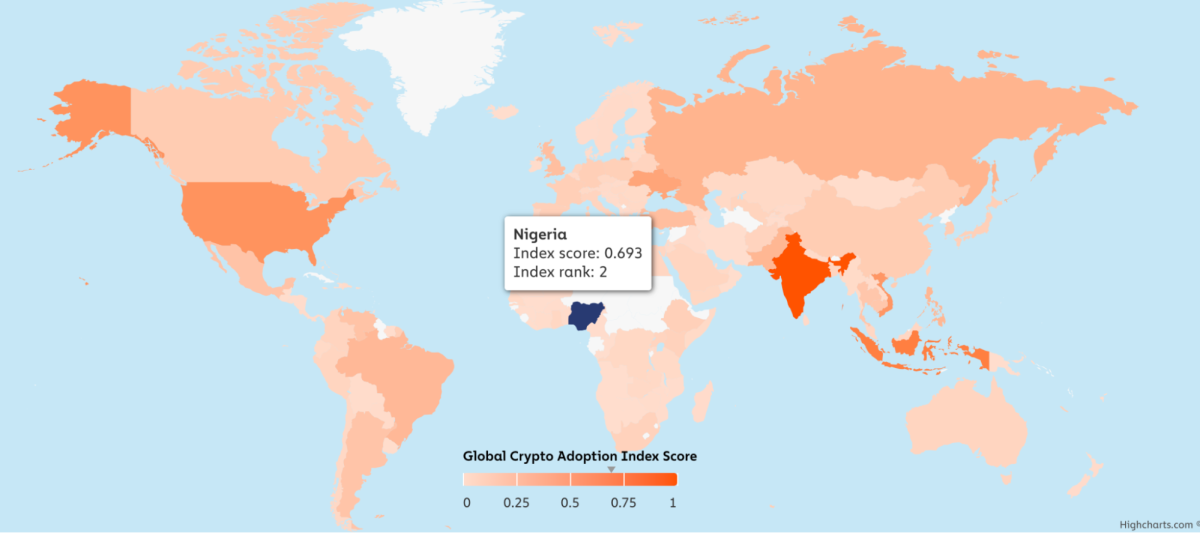The rise of bitcoin and digital assets has sparked a classic battle, with governments acting as watchful hawks, trying to control a technology that is as agile and elusive as a gazelle darting across the savannah of decentralization. In Nigeria, this conflict is as tangled as the dense vegetation of the jungle, where regulators struggle to enforce their rules in a system meant to evade conventional restrictions, while individuals continue to chase the elusive prize of financial freedom that lies just out of reach. The Central Bank of Nigeria (CBN) has oscillated between hardline approaches and cautious acceptance. bitcoin-echoes-global-crypto-conundrum”>One example is its 2021 directive banning banks from facilitating bitcoin transactions. However, just a few years later, the same CBN approves launch of Naira-backed stablecoinindicating a growing recognition of the inevitable role that digital currencies will play in the future of finance. However, these regulations, rather than protecting Nigerians, have often undermined the rights of citizens to freely participate in the financial revolution that bitcoin offers. This culminated in a recent court case brought by James Otudor, a staunch bitcoin advocate, sued the Nigerian government seeking to establish the fundamental right of citizens to trade and hold bitcoin and USDT. The case highlights a broader issue: that of human rights being trampled on in the name of regulatory oversight. It is not just about financial innovation, but about ensuring that Nigerians are not excluded from the benefits of a global economy increasingly driven by decentralised technologies.
Across Africa, the regulatory landscape for bitcoin and digital assets is shaped by two competing paradigms: collaboration and confrontation. Nigeria's Securities and Exchange Commission (SEC) has taken some steps towards a collaborative model, as seen in the launch of its Regulatory Incubation Program aimed at fostering innovation while maintaining oversight. However, even within this supposedly progressive framework, the right of Nigerians to freely own and transact bitcoin remains under threat. Recent actions, such as the crypto-users-over-naira-fluctuation-allegations/?amp=1″>freezing of assets linked to the Bybit and KuCoin exchanges,
As Nigerian regulators grapple with how to manage this burgeoning industry, they must recognize that bitcoin's regulatory landscape cannot be lumped in with the entire digital asset ecosystem. bitcoin operates on fundamentally different principles, with decentralization at its core, unlike many other digital assets that may still rely on centralized control or governance. Any attempt to impose blanket regulations on all digital assets, including bitcoin, would be a catastrophic misstep, risking stifling innovation and depriving Nigerians of the opportunity to fully participate in the global economy. Regulators must therefore approach bitcoin with a unique understanding of its intrinsic operating metrics. Its decentralized nature is not a flaw to be eliminated through regulation, but rather a feature that offers unprecedented opportunities for financial inclusion and economic freedom. Policymakers should learn from global examples, such as Europe's MiCA framework, But those lessons need to be tailored to the specific context of bitcoin, ensuring that they do not impose unnecessarily restrictive regulations. Failing to distinguish bitcoin from other digital assets in the regulatory process would result in inefficiency, stifle innovation, and risk relegating legitimate activities to the shadows. bitcoin-in-court-a-nigerian-bitcoiner-sues-the-nigerian-president-central-bank-and-others/”>The James Otudor court case marks a pivotal moment, not just for Nigeria but for the entire continent, as it seeks to ensure that financial regulations are crafted with respect for human rights and an understanding of the transformative power of decentralized finance.

The path forward for Nigeria is clear: regulators must design policies that protect citizens and encourage innovation, and they must do so with the understanding that bitcoin is fundamentally different from other digital assets. The current regulatory pressure, if not carefully balanced, risks becoming a tool of oppression rather than empowerment. By engaging with the bitcoin community and developing a nuanced approach to regulation, Nigeria can position itself as a leader in the global financial revolution. Anything less would be a disservice to the millions of Nigerians who have already embraced this new paradigm and a betrayal of the ideals of freedom and innovation that bitcoin represents.
This is a guest post by Heritage Falodun. The views expressed are solely his own and do not necessarily reflect those of btc Inc or bitcoin Magazine.






